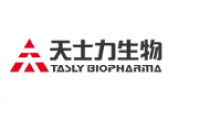-
FastWave Medical kicks off first-in-human study of its IVL tech
- Source: drugdu
- 355
- January 22, 2024
-
FDA Fast Tracks Nurix Therapeutics, Inc’s Novel BTK Inhibitor for CLL, SLL
- Source: drugdu
- 262
- January 22, 2024
-
Ultrasensitive Molecular Diagnostic Tools Detect Asymptomatic Malaria
- Source: drugdu
- 470
- January 22, 2024
-
New Algorithm Detects and Identifies Novel Bacterial Organisms
- Source: drugdu
- 318
- January 22, 2024
-
Comanche raises $75m to develop preeclampsia therapy
- Source: drugdu
- 340
- January 22, 2024
-
AI Governance Alliance calls for stronger global collaboration
- Source: drugdu
- 282
- January 22, 2024
-
Synendos set to study endocannabinoid inhibitor for neuropsychiatric conditions
- Source: drugdu
- 263
- January 22, 2024
-
Announcement of Tonghua Dongbao on the Achievement of Primary Endpoint in Phase IIa Clinical Trial of URAT1 Inhibitor (THDBH130 Tablets)
- Source: drugdu
- 295
- January 22, 2024
-
Announcement of Hengrui Pharmaceuticals on the Notification of Approval for Clinical Trial of Drugs by Subsidiary Company
- Source: drugdu
- 447
- January 22, 2024
-
Announcement of Tasly Bioharma on the Notification of Approval of Drug Clinical Trial
- Source: drugdu
- 465
- January 22, 2024
your submission has already been received.
OK
Subscribe
Please enter a valid Email address!
Submit
The most relevant industry news & insight will be sent to you every two weeks.

















